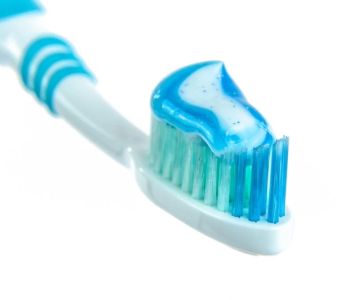Understanding the Causes of Swollen Gums
Swollen gums can be a sign of underlying problems. Gum disease, whether it's gingivitis or periodontitis, is often the culprit due to plaque buildup along the gum line from poor oral hygiene. Pericoronitis, where food debris gets trapped around wisdom teeth, can also cause swelling. Malnutrition, especially a vitamin C deficiency, can affect the gums. Poorly fitting dentures or orthodontic appliances may lead to swollen gums. Hormonal changes during pregnancy frequently result in swollen, inflamed, and sensitive gums. Medications, toothpaste or mouthwash allergies, smoking, uncontrolled diabetes, excessive sugar consumption, and alcohol intake can all contribute to gum swelling.
Signs of Gum Swelling
Swollen gums usually have a reddish or purplish hue due to increased blood flow. They may appear smooth or shiny and often bleed. It's important to be aware of these signs and take appropriate action.
Home Remedies for Swollen Gums
There are several home remedies that can provide relief for swollen gums. Brushing and flossing your teeth daily is essential. Rinsing your mouth with warm saltwater a few times a day can help. Applying an ice pack to your face can reduce swelling and inflammation. Switching toothpaste if it's causing issues and maintaining a balanced diet rich in calcium and vitamin C is beneficial. Avoiding sugary foods and drinks, limiting alcohol consumption, and quitting smoking can also have positive effects on gum health.
Dental Treatments for Swollen Gums
If gum disease is the cause, dentists or periodontists can recommend treatments such as antibiotics, more frequent brushing and flossing, tooth scaling and root planing, osseous surgery, or the LANAP® procedure. For a dental abscess, root canal therapy or tooth extraction might be necessary. If the swelling is not due to gum disease, healthcare providers will order tests to determine the underlying cause and recommend the appropriate treatment.
When to Seek Professional Help
If gum swelling persists for more than a couple of weeks or if severe pain doesn't improve with medication, it's time to consult a dentist or periodontist. Prompt treatment can prevent the problem from worsening and ensure long-term oral health.
In conclusion, swollen gums can be a symptom of various conditions, but there are many ways to address the issue. Whether through home remedies, maintaining good oral hygiene, or seeking professional dental treatment, it's crucial to take action to improve gum health. Understanding the causes and signs, as well as knowing when to seek help, can lead to a healthier mouth and overall well-being.






 Westgate Dental Arts
Westgate Dental Arts Coventry Family Dental
Coventry Family Dental Familia Dental
Familia Dental Dr. Daniel S. Fife, DDS
Dr. Daniel S. Fife, DDS Dentistry At Suburban Square: Michael I. Wollock, DMD
Dentistry At Suburban Square: Michael I. Wollock, DMD Comfort Care Dental
Comfort Care Dental The Importance of Oral Health Education During Pregnancy for a Healthy Pregnancy
The Importance of Oral Health Education During Pregnancy for a Healthy Pregnancy Why Skipping Dental Checkups Can Lead to Bigger Oral Health Problems
Why Skipping Dental Checkups Can Lead to Bigger Oral Health Problems Best Tips for Brushing Your Teeth Properly for Healthy Gums: Essential Techniques for Oral Health
Best Tips for Brushing Your Teeth Properly for Healthy Gums: Essential Techniques for Oral Health Advantages of Porcelain Dental Restorations
Advantages of Porcelain Dental Restorations How Can Diabetes Cause Tooth and Gum Problems? Preventing and Managing Oral Health Issues
How Can Diabetes Cause Tooth and Gum Problems? Preventing and Managing Oral Health Issues Healthy Habits for Promoting Good Oral Health and Hygiene: Tips for a Healthy Smile
Healthy Habits for Promoting Good Oral Health and Hygiene: Tips for a Healthy Smile